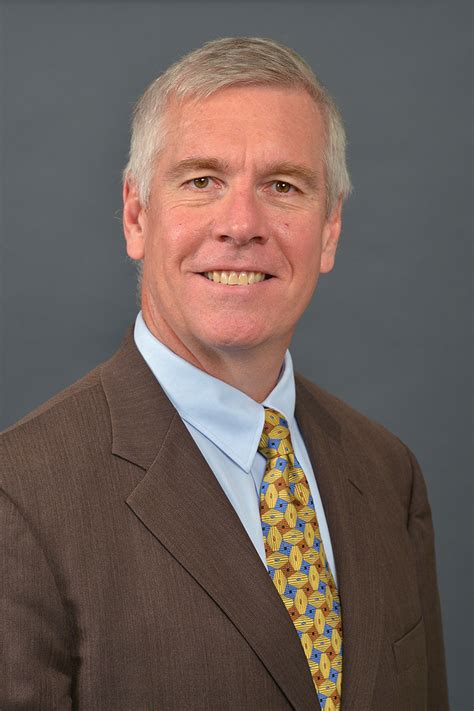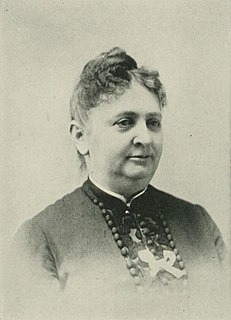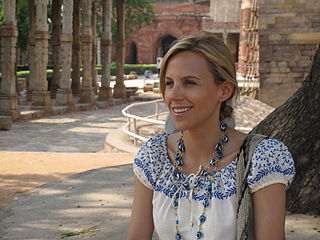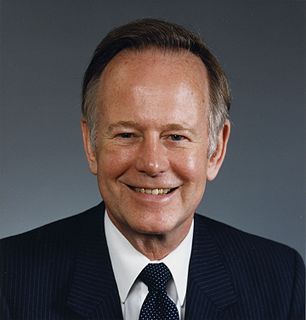Top 1200 Teaching Others Quotes & Sayings - Page 7
Explore popular Teaching Others quotes.
Last updated on April 22, 2025.
Selfish is an exploitation of others for self; selfless is an exploitation of self for others. Both are extrinsic. ..... Selfness. When selfness prevails, the qualities of others are sometimes used for self and the qualities of self are often extended to others. The basic and key difference is that exploitation is never the object of the outcome.
One who is kind is sympathetic and gentle with others. He is considerate of others' feelings and courteous in his behavior. He has a helpful nature. Kindness pardons others' weaknesses and faults. Kindness is extended to all - to the aged and the young, to animals, to those low of station as well as the high.
Psychologists would say that the only two important forms of social learning are imitation and teaching, and they will spend time trying to figure out if animals imitate or teach. Sometimes they find they do; sometimes they find they don't. And so that's kind of the level of controversy there. Biologists would include imitation and teaching and a range of other kinds of social learning. So we would call that culture, whereas the psychologist wouldn't.
One who is kind is sympathetic and gentle with others. He is considerate of others feelings and courteous in his behavior. He has a helpful nature. Kindness pardons others? weaknesses and fault. Kindness is extended to all--to the aged and the young, to animals, to those low of stations as well as the high.
A failure remains a failure only if we refuse to learn from it. Any situation that teaches us greater humility, sobriety, wisdom about self and others, responsibility, forgiveness, depth of reflection, and better decision making -\-\teaching us what's truly important-\-\is not an ultimate failure. Sometimes what we deem a failure at the time it happens actually serves to foster a change within us that creates an even greater success down the road.
It is time for you to make a commitment to create joy, creativity and love for yourself, only then will you benefit others, for if you do not evolve yourself, you do not serve others. By becoming a living example, by following what is in your heart, you show the way for others to follow with courage, what is in their hearts.
If the knowledge of torture of others makes you sick, it is a case of sympathy... It can be argued that behaviour based on sympathy is in an important sense egoistic, for one is oneself pleased at others' pleasure and pained at others' pain, and the pursuit of one's own utility may thus be helped by sympathetic action.
Film theory has nothing to do with film. Students presumably hope to find out something about film, and all they will find out is an occult and arcane language designed only for the purpose of excluding those who have not mastered it and giving academic rewards to those who have. No one with any literacy, taste or intelligence would want to teach these courses, so the bona fide definition of people teaching them are people who are incapable of teaching anything else.
The so-called Church Fathers are not some theologians as we know them nowadays. They were close to the teaching of the Apostles conveying the teaching of those who were close to Jesus. Their theology and wisdom is close to everyday life. We have to thank John Michael Talbot that he has been able to unearth the treasures of those times. This was only possible because he himself in his community experiences the Gospel lived out in our times.
. . . the fools of this world prefer to look for sages far away. They don't believe that the wisdom of their own mind is the sage . . . the sutras say, "Mind is the teaching." But people of no understanding don't believe in their own mind or that by understanding this teaching they can become a sage. They prefer to look for distant knowledge and long for things in space, buddha-images, light, incense, and colors. They fall prey to falsehood and lose their minds to insanity.
Not being known doesn't stop the truth from being true. You are led through your lifetime by the inner learning creature, the playful spiritual being that is your real self. What the caterpillar calls the end of the world, the master calls a butterfly. Learning is finding out what we already know. Doing is demonstrating that you know it. Teaching is reminding others that they know just as well as you. You are all learners, doers and teachers. The best way to pay for a lovely moment is to enjoy it.
If you Need to convince others that you’re happy, then you have Not found real Joy.
If you Need to impress others with material objects, then you do Not understand true Wealth.
If you Need to correct others, then you have Not looked in the mirror.
If you Need to put others down, you have Not connected to your Higher Self.
Know Yourself. Be Honest with Yourself. Don’t be a teacher or judge, be an... Example.
Our sense of identity is in large measure conferred on us by others in the ways they treat or mistreat us, recognize or ignore us, praise us or punish us. Some people make us timid and shy; others elicit our sex appeal and dominance. In some groups we are made leaders, while in others we are reduced to being followers. We come to live up to or down to the expectations others have of us.
I think about my education sometimes. I went to the University of Chicago for awhile after the Second World War. I was a student in the Department of Anthropology. At that time they were teaching that there was absolutely no difference between anybody. They may be teaching that still. Another thing they taught was that no one was ridiculous or bad or disgusting. Shortly before my father died, he said to me, ‘You know – you never wrote a story with a villain in it.’ I told him that was one of the things I learned in college after the war.
When you write a business fable, people get caught up in the story and don't get judgmental about what you're teaching them. If you're teaching a bunch of concepts, people get skeptical and say, 'Where'd you get that research?' But if you tell them a story, they get caught up in it while they learn.
I do believe that nice religious people make the world safe for extremists by teaching us [...] that faith is a virtue, teaching us that there's something good about holding beliefs without any substantiating evidence. Once you buy into that, [...] then the door is opened to extremists who defend their extremism by saying, 'Oh well, it's my faith, you can't touch it, you can't criticise my faith, I don't even need to defend it because faith is faith.'
When others spoke of the fear of war, you spoke of the need for warriors and peace through strength. When others bewailed the failure of big government to provide for the collective good, you spoke of self-reliance, of personal responsibility, of individual pride and integrity. When others preached compromise - when others demanded compromise, you, Ronald Reagan, preached conviction.
We need others for our physical, emotional, and spiritual well-being. Without others we are nothing. Our sense that we are an island, an independent, self-sufficient individual, bears no relation to reality. It is closer to the truth to picture ourself as a cell in the vast body of life, distinct yet intimately bound up with all living beings. We cannot exist without others, and they in turn are affected by everything we do. The idea that it is possible to secure our own welfare while neglecting the welfare of others, or even at the expense of others, is completely unrealistic.
In Acts 14:1, we are told, "At Iconium Paul and Barnabas went as usual into the Jewish synagogue. There they spoke so effectively that a great number of Jews and Gentiles believed." This is what should be sought in Christian schools, not just teaching, but effective teaching. Christian content alone is insufficient. It must be presented in a certain way, and that way cannot be reduced to technique. Nevertheless, God has graciously made it possible to bring people the truth by how the truth is presented.
Motive is also important in our quest for knowledge and in the questioning that accompanies it. In commenting on our duty to educate for eternity, Eugene England writes: Teaching or learning - with the Spirit of God simply means (though it is not simple) that we are doing so with an eye single to eternal, not worldly, values, with an eye single to lasting development of the mind and spirit and to useful service to others, especially to aid in their lasting development of mind and spirit.
Some individuals may perceive their losing fight with gravity as a sharp pain in their back, others as the unflattering contour of their body, others as constant fatigue, yet others as an unrelentingly threatening environment. Those over forty may call it old age. And yet all these signals may be pointing to a single problem so prominent in their own structure, as well as others, that it has been ignored: they are off balance, they are at war with gravity.
Sometime during the 1990s, when I was teaching philosophy at UCSD, my friend, colleague, and music teacher, Carol Plantamura, discussed the possibility of teaching a course together looking at ways in which various literary works (plays, stories, novels) had been treated as operas, and how different themes emerged in the opera and in its original. One of the pairings we planned to use was Mann's great novella and Britten's opera. Unfortunately, the course was never taught, but the idea remained with me.
And what is true education? It is awakening a love for truth; giving a just sense of duty; opening the eyes of the soul to the great purpose and end of life. It is not so much giving words, as thoughts; or mere maxims, as living principles. It is not teaching to be honest, because 'honesty is the best policy'; but because it is right. It is teaching the individual to love the good, for the sake of the good; to be virtuous in action because one is so in heart; to love and serve God supremely, not from fear, but from delight in his perfect character.
Much that was called religion has carried an unconscious attitude of hostility toward life. True religion must teach that life is filled with joys pleasing to the eye of God, that knowledge without action is empty. All men must see that the teaching of religion by rules and rote is largely a hoax. The proper teaching is recognized with ease. You can know it without fail because it awakens within you that sensation which tells you this is something you’ve always known.
All over the world, there are libraries of a sort. They are among the most beautiful places on the earth, and they hold more information than the Library of Congress. Within these libraries are millions of books, each a uniques masterpiece to see and touch. They are teaching this language to scientists. However, so far only one percent of the books have been deciphered. Some tell how to find new medicines; others reveal new things to eat... These treasure houses of knowledge are the ancient forests of our planet.
In your school you take part in various activities that habituate you not to shut yourselves in on yourselves or in your small world, but to be open to others, especially to the poorest and neediest, to work to improve the world in which we live. Be men and women with others and for others, real champions in the service of others. To be magnanimous with interior liberty and a spirit of service, spiritual formation is necessary. Dear children, dear youths, love Jesus Christ ever more!
Men, your primary responsibility in your home, after your wife, is you to disciple your own children. And if you don't do it, you're in sin; you are in sin. And if you turn it over to a Sunday school teacher, you are in sin. And you are to be teaching these children more than just stories about animals that went into Noah's ark. You're to be teaching them about God, about radical depravity, about blood atonement, about propitiation, expiation, justification, sanctification; you are to teach your children!
Books are never harmless...they either strengthen us or they weaken us in our faith. Some of them do this even as they entertain us, others as they teach us. In an invisible way their teaching penetrates into our hearts and souls, to continue its work inside, and we inhale the spirit of these books as healing or poisonous vapors. They can bring the greatest benefits and the greatest ruin, for from their ideas that they spread come the deeds of the future.
Owing to the identification of religion with virtue, together with the fact that the most religious men are not the most intelligent, a religious education gives courage to the stupid to resist the authority of educated men, as has happened, for example, where the teaching of evolution has been made illegal. So far as I can remember, there is not one word in the Gospels in praise of intelligence; and in this respect ministers of religion follow gospel authority more closely than in some others.
I was associated with the Artist Placement Group in the early 1970s and David Hall, the video artist, was an Artist Placement Group artist. I was completely broke at that time, and he said to me, "Come and do some teaching" - he was head of department at Maidstone College of Art. And I went and did a couple of teaching days and practically the only person who showed up was David Cunningham [Flying Lizard's main man], with all of this finished work
The key to teaching anything is to remember what it was like not to understand that thing. That's a very hard thing to do. Every time you come to understand something you didn't understand before, you are transformed. You become a different person from who you were before. The key to teaching someone else to understand that same thing is to remember your former, untransformed self. If you can do that, I think you can teach anything, even physics.
I believe that a core problem with undergraduate education, especially at research universities like Harvard, Stanford, NYU, etc, is that most teaching is done by PhDs, who by temperament, training, interests, and rewards are researchers first. So they spend most of their time and energy probing a snip of a field's cutting edge. In my view, the attributes needed to be a transformative undergraduate instructor are pretty orthogonal to that. It would seem that undergraduate education would be superior if there was a separate track for teaching faculty.
There are a lot of polls that show that actually Americans have a pretty high opinion of teachers, that Americans think teachers are just about as prestigious as doctors. And yet there's this political conversation - this reform conversation - that paints a very negative picture of the effectiveness of the teaching population. So there's definitely a tension between the way teaching is talked about and understood at the political level and how everyday average Americans think about teachers.
In education, I'm going to try to find what works. One thing I want to do is improve the quality of teachers. There are a lot of people who want to go into teaching; it's fundamentally a very fulfilling profession. But people don't feel they have financial support. We pay starting teachers in particular too little to attract the quality people that we need. I want to make it easier for good people who want to go into teaching to do that.
I hadn't had any course work in ceramics. I had no courses in art education but I wasn't going to let this chance to have a job pass me by. I went out and learned and I stayed one step ahead of the students by reading and I got to be pretty proficient at throwing on the wheel and making my own glazes, ordering the chemicals and having the students go out and dig and process their clay, and doing things that they weren't teaching at Howard University. So Talladega College opened up my whole sensibility about experimental teaching.
I love teaching I think more than anything. It's the opportunity to just teach young people and teach the game. You teach more than basketball. You teach life skills. The teaching part of it is something that I am passionate about. I look forward to every practice. A lot of people say well, I enjoy coaching, but I see myself as more as a teacher.
We will freedom for freedom’s sake, in and through particular circumstances. And in thus willing freedom, we discover that it depends entirely upon the freedom of others and that the freedom of others depends upon our own. Obviously, freedom as the definition of a man does not depend upon others, but as soon as there is a commitment, I am obliged to will the liberty of others at the same time as my own. I cannot make liberty my aim unless I make that of others equally my aim.
I would say how important it is that we stop teaching kids, from the beginning, that boys are more important than girls. It's the 21st century, you know, let's go here. We have to show kids that boys and girls share the sandbox equally and do equally interesting things. We're teaching kids something that we have to try to get rid of later on. Why not just stop filling them with unconscious gender bias?
I believe that the biblical teaching is clear. It always contests political power. It incites to "counterpower," to "positive" criticism, to an irreducible dialogue (like that between king and prophet in Israel), to antistatism, to a decentralizing of the relation, to an extreme relativizing of everything political, to an anti-ideology, to a questioning of all that claims either power or dominion (in other words, of all things political), and finally, if we may use a modern term, to a kind of "anarchism" (so long as we do not relate the term to the anarchist teaching of the nineteenth century).

























































